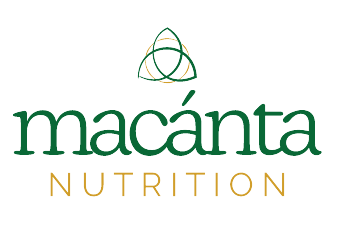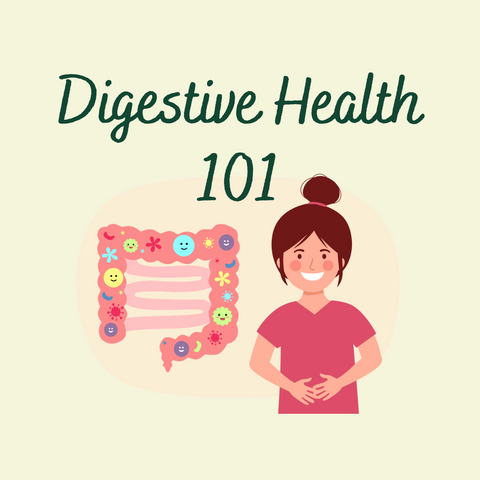When your digestive system is working smoothly, it’s easy to take it for granted. But when things go wrong - bloating, or discomfort - it becomes clear just how vital your gut is to your overall wellbeing.
In this helpful guide, we’ll break down the basics of digestive health, why it matters, and practical ways to support your gut so you can feel your best every day.
What Is Digestive Health?
Digestive health refers to how well your gastrointestinal (GI) tract processes food, absorbs nutrients, and eliminates waste. This complex system includes your mouth, oesophagus, stomach, small and large intestines, liver, pancreas, and gallbladder.
A well-functioning digestive system ensures your body gets the energy and nutrients it needs to function, grow, and repair itself.
Why Is Digestive Health Important?
Digestive health goes far beyond preventing the occasional stomach ache - it’s a foundational pillar of your overall health. The gut plays a central role in a wide range of critical bodily functions, many of which might surprise you. Here's how:
1. Immune Defence Starts in the Gut
Roughly 70% of your immune system resides in your gastrointestinal tract. This isn’t a coincidence - the gut is the body’s first line of defence against harmful pathogens. It houses a diverse ecosystem of bacteria (known as the gut microbiome) that helps identify invaders, produce immune-boosting compounds, and maintain a healthy inflammatory response. A disrupted microbiome can weaken these defences, increasing your risk of illness and infection.
2. The Gut-Brain Connection Is Real
Ever felt “butterflies” before a big event? That’s your gut-brain axis in action. This network connects your digestive system to your central nervous system through nerves, hormones, and immune signals. Gut imbalances have been linked to mood fluctuations and brain fog. Supporting gut health isn’t just about digestion - it’s can also aid mental clarity and emotional balance too.
3. Absorbing Nutrients, Not Just Consuming Them
You can eat the most nutritious foods in the world, but if your gut isn’t functioning well, your body may not absorb key nutrients like vitamins, minerals, and amino acids. Over time, poor nutrient absorption can lead to deficiencies, fatigue or weakened immunity. A healthy gut ensures your food becomes fuel - not just filler.
4. Gut Health and Inflammation: What’s the Connection?
We constantly hear about “inflammation” and its effects on our bodies, but how do we actually manage it? Your gut plays an important role in helping your body keep inflammation in check. When your gut bacteria are balanced, they support your immune system to respond properly, attacking harmful invaders without going overboard. If your gut isn’t healthy, this balance can be disrupted, which may lead to low-level inflammation that lingers longer than it should.
Tips for Supporting Digestive Health
The good news? Your gut responds well to care. Here are some simple ways to support a healthy digestive system:
-
Eat More Fibre
Fibre helps keep food moving smoothly through your system, preventing constipation and feeding the beneficial bacteria in your gut. Aim to include a mix of soluble fibre (like oats and apples) and insoluble fibre (such as whole grains and vegetables). -
Stay Hydrated
Water aids in breaking down food and keeps everything flowing. Try to drink at least 6–8 glasses of water per day, and more if you’re active. -
Limit Processed Foods
Highly processed foods, added sugars, and unhealthy fats can disrupt gut bacteria and slow digestion. -
Add Fermented Foods
Foods like yogurt, kefir, sauerkraut, kimchi, and kombucha contain natural probiotics that help maintain a balanced gut microbiome.
-
Chew Slowly
Digestion actually starts in your mouth. Chewing thoroughly reduces the workload on your stomach and improves nutrient absorption. -
Manage Stress
Stress can affect the gut-brain connection and worsen symptoms like indigestion. Practices like meditation, exercise, or deep breathing can help relieve stress. -
Get Moving
Regular physical activity stimulates intestinal contractions, which can help reduce bloating and improve digestive function.
Your digestive system is the engine room of your health - processing food, fuelling your body, and influencing everything from immunity to mood. With a few simple lifestyle shifts, you can support a healthy gut and improve your overall wellbeing.
Your gut deserves as much attention as any other part of your body - so give it the care it needs, and it will take care of you!




